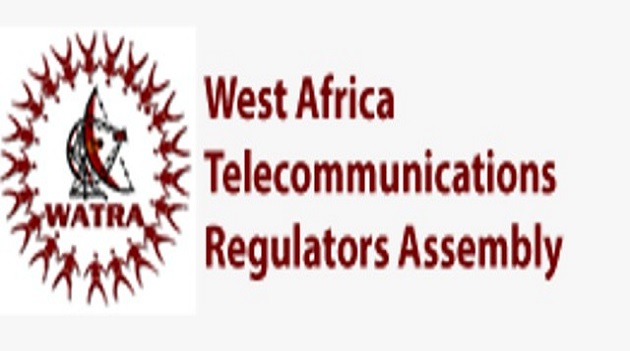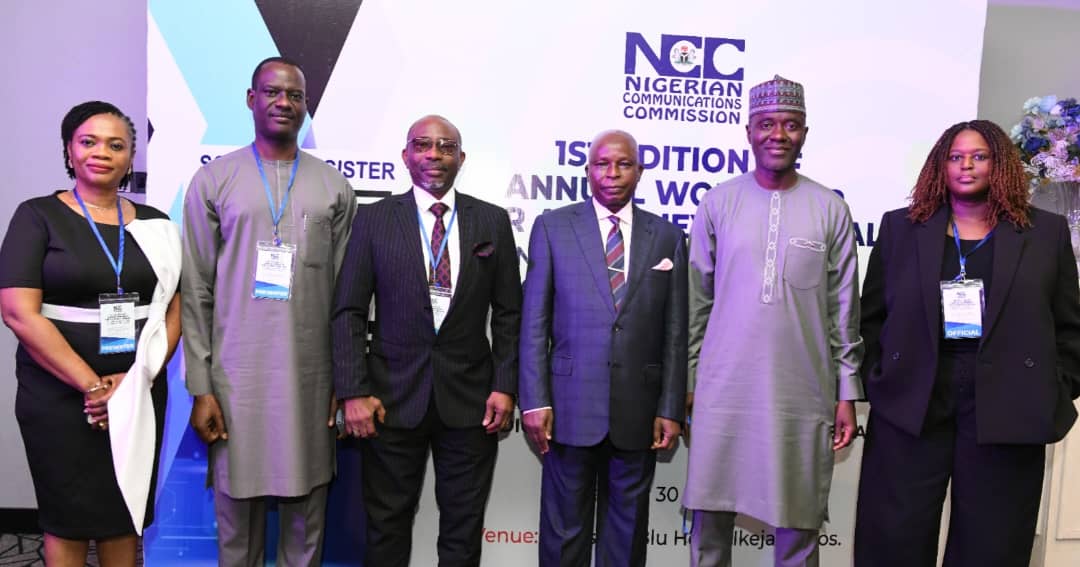Telecom
5G Forecast to Create Almost 23m Jobs within 15 years

With 5G-enabled job growth forecast to be 22.8 million globally over the next 15 years, the fifth-generation technology standard for broadband cellular networks is one of the major trends that will shape the ICT industry in 2021.

This is according to submarine cable and high-speed fibre-optic cable operator Seacom.
New kinds of connectivity such as 5G and WiFi 6, the future of cloud and edge computing, the rise of intelligent technology, privacy and cyber crime, and other developments in technology are fundamentally changing the ways we live and do business – and they are among the major trends SA should be paying attention to as we move into the new year, says the company.
Although 2020 was a difficult year, it has accelerated digital adaptation and transformation. If business leaders begin the new year thinking about how to take advantage of new technologies and introduce smart strategies, they will be better prepared to grasp the opportunities that better connectivity, cloud computing and artificial intelligence (AI) will provide, notesSeacom.
5G, WiFi 6 push the envelope
According to Steve Briggs, chief commercial officer at Seacom, 5G-enabled job growth has been forecast by Qualcomm to be greater than previously expected – up from 22.3 million to 22.8 million over the next 15 years. With 5G services expected to launch worldwide in 2021, the global economic potential for the fifth-generation technology is expected to create $13.1 trillion worth of revenue by 2035.
“The introduction and rollout of 5G is expected to transform any industry that relies on connectivity – and not just mobile connectivity. Telecoms giants are deploying and developing 5G phones and networks at a steady pace and 5G is becoming a highly contested subject in the US-China trade war. Predictions are that the amount of digital data created globally will be 163 zettabytes by 2025 – which shows the pace of digitalisation is accelerating,” notes Briggs.
“The challenge for South African networks, however, will be accessing the 5G spectrum to provide emerging digital services, and then finding ways to decrease costs.”
Last week, the Independent Communications Authority of South Africa asked telcos to pay for the emergency spectrum issued during the COVID-19 disaster regulations.
The number of live 5G networks has increased significantly since the beginning of 2019, with more than 50 operators expected to offer 5G services in about 30 countries by the end of 2021.
As the perfect partner for 5G, WiFi 6 also started rolling out in 2020 and will gain more traction in 2021.
“As the number of devices on WiFi networks is expected to grow, so will the volume and quality of data that needs to be transferred. We can expect WiFi 6 to handle more information up to three times faster than its predecessor, with smarter capabilities,” notesBriggs.
Future of cloud and edge computing
Improved connectivity is good news, as more organisations are expected to embrace remote work. For companies that have not started investing in cloud infrastructure, there is no better time than now, asserts Briggs.
The cloud is being pushed to its limits, with cloud traffic expected to process 95% of all data centre traffic in 2021 compared to 88% in 2016, and grow by 41% within the next two years.
Cloud technology enables improved and secure communication, remote collaboration, and streamlines various business processes with effortless scalability, while edge computing brings information processes closer to where they’re needed, explains Briggs.
Rather than having information travel halfway across the globe, more cloud hosting services will put their physical servers closer to customers, improving connectivity speeds, customer experience, as well as security and privacy through edge computing.
For African countries that rely on European servers for most cloud services, this will be especially significant.
“The decentralisation of information could also democratise education in developing countries and allow more people to live as digital nomads. With the aid of cloud computing, hardware will be less of a concern in the future – replaced by a new generation of software. In the gaming industry, Google Stadia is a great example of this, as people will be able to run high-end games in full quality on something as simple as a tablet,” says Briggs.
Rise of intelligent technology
Briggs believes AI, automation and machine learning are indisputably laying the foundations of a digital future.
While many people may think AI will take jobs away from people, it is more likely to become a tool that people will use to complement their work, or allow them to focus their skills on tasks that are less menial and repetitive. AI is not going away, so businesses should be looking at ways to harness its power in 2021.
“Language model AIs have improved immensely over the last few years, and a shift is happening in the way we may interact with this tech in the near future. The revolutionary language model generative pre-trained transformer 3 looks promising, with many potential applications, including the creation of an AI workplace assistant that can be used to navigate business processes in natural conversation,”Briggs points out.
AI-optimised manufacturing has led to greater efficiency in outputs and product quality, while also reducing waste. AI is also transforming healthcare as it is becoming an increasingly reliable tool for doctors and healthcare professionals to make informed decisions.
Privacy and cyber crime
As digital transformation continues, so will the commodification of personal data, and increasingly people and companies will have to choose between the conveniences that digital platforms and services offer and keeping their data private.
“Many companies have been fined heavily for leaking user data, such as Equifax, as well as lacking transparency regarding advert personalisation, such as Google.
“While these fines are often a slap on the wrist for tech giants, privacy concerns will continue to be a priority into 2021 for individuals and businesses. Because the world lacks global privacy standards, consumer data has become ‘free game’ and AI has made collecting and using people’s personal information easier than ever,” Briggs notes.
The onus is also on businesses to take the necessary steps to protect themselves and their customer data against cyber crime. If organisations want to avoid seeing themselves in a brand-damaging headline,Briggs advises them to make 2021 the year they take digital security seriously.
Telecom
NIMC Migrates Telcos to NINAUTH Platform

National Identity Management Commission (NIMC) has announced the successful migration of all Telecommunications firms to the new National Identification Number (NIN) verification platform (NINAuth).

According to Dr Kayode Adegoke, head, corporate communications, NIMC, the migration marked a significant step forward in enhancing the security, efficiency, and user experience of NIN verification services.
Adegoke said in a statement that the NINAuth platform, designed and implemented by NIMC, offers seamless verification services to Nigerians.
He described it as a more convenient and secure way to verify citizens identities.
” By migrating to this new platform, Telecommunications firms can now provide uninterrupted verification services to their subscribers.
“This achievement is a result of NIMC’s painstaking efforts to put the power to control NIN data in the hands of the holders.
“The NINAuth platform enhances data protection, gives control of personal data to the owners, offers seamless verification, and provides convenient sign-on access to services,” Adegoke said.
He quoted Lanre Yusuf, director, IT/IDD, NIMC, as confirming that all telecommunications firms have been successfully migrated and uninterrupted verification services are being offered by the Commission.
While the Commission assured that the Verification and Authentication Service platforms are functional and accessible to all , it however, said any issue being experienced by NIN holders on New SIM registration, SIM swap, SIM migration, Welcome back SIM, and others should be directed to the Telcos for resolution.
Telecom
Aliyu Aboki, WATRA Executive Secretary Champions Regulatory Harmonisation to Unlock West Africa’s Digital Economy

Mr. Aliyu Yusuf Aboki, executive secretary of the West Africa Telecommunications Regulators Assembly (WATRA), has reaffirmed the Assembly’s commitment to -promoting a harmonised digital policy and regulatory environment across West Africa—stating that consistent, coordinated regulation is key to unlocking investment, innovation, and growth in the region’s digital economy.

Speaking at the opening of the third meeting of WATRA’s Working Groups in Accra, Ghana, Mr. Aboki emphasised that a harmonised regulatory space would turn West Africa into a coherent, unified digital market attractive to global and regional investors.
“WATRA is not just facilitating dialogue—we are laying the foundation for a seamless regional market where innovation and investment can thrive,” said Mr. Aboki. “This meeting in Accra reflects our collective determination to build regulatory infrastructure that enables inclusion, trust, and scale.”
Hosted by Ghana’s National Communications Authority (NCA), the four-day high-level session brings together telecom regulators, private sector leaders, development partners, and digital policy experts to share knowledge and experiences and develop recommendations that will refine regional frameworks in three key areas: consumer experience, infrastructure development, and cybersecurity.
Why Harmonisation Creates a Larger Market
The ECOWAS region—home to over 400 million people—has immense potential as a single digital market. Yet divergent national regulations have led to fragmented investment environments, increased compliance costs, and inefficiencies in service delivery.
By aligning rules and standards across borders, harmonisation expands the effective size of the market available to telecom operators, fintechs, digital platforms, and infrastructure investors. Instead of dealing with 16 different licensing regimes, spectrum policies, or consumer regulations, companies can scale more efficiently across the region—reducing costs and risks while increasing innovation and competition.
“Regulatory harmonisation transforms fragmented national markets into one larger, more investable region,” Mr. Aboki explained. “It’s the gateway to building regional tech champions, improving affordability for consumers, and fostering resilient digital systems.”
Why the Working Groups Matter
WATRA’s Working Groups—on Consumer Access and Experience, Infrastructure Development, and Cybersecurity—are the Assembly’s strategic engines for technical cooperation and reform. Under Mr. Aboki’s leadership, they are designing regional frameworks that serve as models for national implementation.
- Consumer Access and Experience: Enhancing consumer trust and fair service standards increases uptake of digital services and drives inclusive digital participation.
- Infrastructure Development: Harmonised infrastructure policies—especially around spectrum allocation, satellite communications and sub-sea and terrestrial optical fibre—attract investment in broadband, towers, and regional connectivity.
- Cybersecurity: Establishing regional cyber standards is critical to protecting users, safeguarding cross-border digital trade, and ensuring investor confidence.
“The Working Groups produce actionable, home-grown solutions that regulators can adapt to national contexts,” Mr. Aboki said. “They are where vision meets implementation.”
A Sector of Strategic Importance
West Africa’s telecommunications industry is a cornerstone of the region’s economic development. With over 250 million mobile subscribers, more than 120 million internet users, and nearly 15% of Nigeria’s GDP coming from ICT, the sector plays a transformative role in commerce, education, governance, and job creation.
Yet, the absence of harmonised rules continues to impede regional scale. Mr. Aboki stressed that the creation of a Single Digital Market in West Africa could unlock billions of dollars in annual value, supporting seamless mobile roaming, digital financial inclusion, cross-border e-commerce, and regional cloud infrastructure.
A Vision for Regional Digital Transformation
The Accra meeting will finalise recommendations and technical outputs for validation and adoption at WATRA’s next Conference of Regulators. These outcomes are expected to serve as shared regional standards—improving regulatory consistency while respecting each country’s unique context.
Ghana’s Acting Director-General of the NCA, Edmund Yirenkyi Fianko, expressed support for the harmonisation effort, citing Ghana’s leadership in ECOWAS free roaming and regional cybersecurity frameworks.
Aliyu Aboki’s Strategic Leadership
Since taking office, Mr. Aboki has steered WATRA into a new era of proactive, consensus-driven regional leadership. His efforts are helping to position the Assembly as a continental thought leader in telecom and digital regulation—bridging national priorities with a unified regional vision.
“Regulation should be an accelerator of innovation, not a barrier,” Mr. Aboki concluded. “Through harmonisation, we can build a larger, safer, and more inclusive market that delivers real benefits to citizens, investors, and governments alike.”
Telecom
NCC and Attorneys-General Forge Powerful Alliance to Accelerate Nigeria’s Digital Transformation

Nigerian Communications Commission (NCC) has officially inaugurated its first-ever Annual Workshop for Attorneys-General, convening top legal officers from across Nigeria to strengthen regulatory collaboration and drive the nation’s digital agenda forward.

L-R: Head, Legal & Regulatory Services, Nigerian Communications Commission (NCC), Chizua Whyte; Chairman, Presidential Fiscal Policy and Tax Reforms Committee, Taiwo Oyedele; Attorney General of Lagos State, Lawal Pedro, SAN; Attorney General of the Federation and Minister of Justice, Lateef Fagbemi, SAN; Executive Vice Chairman/Chief Executive Officer, NCC, Dr Aminu Maida; and Executive Commissioner, Stakeholder Management, NCC, Barr. Rimini Makama, during the 1st edition of a two-day Annual Workshop for Attorneys General on Emerging Issues in the Communications Industry, hosted by the Commission which started in Lagos on Wednesday, July 30, 2025.
Opening the workshop at the Sheraton Hotel in Ikeja, Dr. Aminu Maida, Executive Vice Chairman/CEO of the NCC, emphasized the urgent need for strategic partnerships between the legal community and regulatory authorities.
“Collaboration is not optional—it is essential,” said Dr. Maida.
The workshop aims to catalyze reforms in the outdated Nigerian Communications Act of 2003, aligning regulatory frameworks with cutting-edge technologies and evolving consumer needs. Areas of focus include artificial intelligence governance, 5G infrastructure rollout, and stronger data protection protocols.
Delivering the keynote address, Attorney-General of the Federation and Minister of Justice, Chief Lateef Fagbemi, SAN, praised the NCC for initiating this impactful dialogue. He underscored the importance of legal clarity and enforcement in combating obstacles such as fragmented taxation, overlapping regulatory mandates, and infrastructure vandalism.
Citing notable setbacks—including the 2023 vandalism of base stations in Kano and the tax conflicts in Ogun State—Chief Fagbemi described these incidents as economic sabotage and called for unified legal responses.
He also spotlighted Anambra State’s Right-of-Way policy, which led to a 38% increase in fibre optic deployment, urging other states to emulate such progressive approaches.
A pivotal highlight of the workshop was the reaffirmation of telecom networks as Critical National Information Infrastructure (CNII), officially designated under President Bola Ahmed Tinubu’s 2024 Executive Order. This new status demands heightened protection and robust legal support.
The NCC announced that the workshop will become an annual platform for cross-governmental collaboration on emerging digital challenges, including cybersecurity, sustainable connectivity, consumer rights, and regulatory innovation.
As Nigeria positions itself at the forefront of Africa’s digital revolution, this unified effort by regulators and legal stakeholders marks a bold step in shaping an inclusive, resilient, and future-ready communications landscape.

 Telecom2 days ago
Telecom2 days agoGlo Boosts Network Capacity for Enhanced Customer Experience

 News2 days ago
News2 days agoTranscorp Power Posts Strong Half-Year Profit, Declares ₦11.25Bn Dividend

 E-Financial2 days ago
E-Financial2 days agoFG Asks Banks to Report Individuals with N25m Monthly Transactions to FIRS

 Telecom2 days ago
Telecom2 days agoNIMC Warns Nigerians Against Selling NIN Data Amid Rising Identity Fraud

 Telecom2 days ago
Telecom2 days agoMTN’s Uto Ukpanah Becomes 30th ICSAN President, Reinforcing Female Leadership in Governance

 E-Business2 days ago
E-Business2 days agoTemu Joins INTA to Combat Counterfeits and Elevate IP Standards Worldwide

 News2 days ago
News2 days agoInfraCredit, AMDA Sign Partnership to Unlock Local Financing for Africa’s Mini-grid Sector

 E-Financial2 days ago
E-Financial2 days agoNIBSS: Active Bank Accounts in Nigeria Hit 320m















